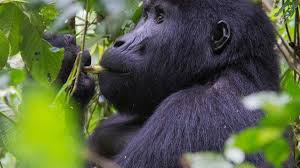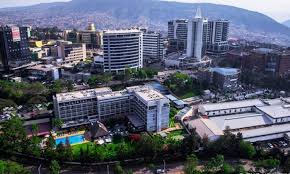- Home
- Gorilla Tours
- Uganda
- Wildlife
- 3 Days Murchison Falls Safari
- 3 Days Queen Elizabeth National Park
- 3 Days Semliki National Park Tour
- 3 Day safari to Lake Bunyonyi
- 5 Days Uganda Wildlife Safari
- 5 Days Kidepo Wildlife Safari tour
- 7 Days Murchison Falls, Semliki & Kibale Trip
- 8 Days Kibale, Queen & Bwindi Safari
- 9 Days Uganda Safari
- 10 Days Uganda primates and wildlife safaris
- 11 Day Uganda Safari Trip
- 12 Day Gorillas & Wildlife Safari in Uganda
- 15 Day Wildlife & Adventure Safari
- 21 Day Explore Uganda Safari
- Family Tours
- Day Tours
- Cultural Tours
- Wildlife
- Rwanda
- Kenya
- Tanzania
- Congo
- Combined Safaris
- 4 Days Uganda & Rwanda Gorilla Safari Tour
- 5 days Rwanda Uganda Gorilla Trek
- 5 days Gorillas and Nyirangongo hike
- 6 days Uganda Rwanda Gorilla Tour
- 8 days Gorilla & Chimp Trekking Safari
- 9 Days Uganda Rwanda Gorilla & Chimps
- 12 Day Best of Uganda Rwanda Safari Tour
- 18 Day Uganda Rwanda Safari Holiday
- Parks
- About us
- Blog
- Contact Us

 several gorilla families and offers one of the most profound wildlife experiences in the world. The park also shelters golden monkeys and other unique species that thrive in this montane forest.
several gorilla families and offers one of the most profound wildlife experiences in the world. The park also shelters golden monkeys and other unique species that thrive in this montane forest. Rwanda’s growing economy, which is increasingly focused on technology, trade, and tourism. The city is also known for its vibrant markets, contemporary art scene, and thriving culinary culture, offering a blend of traditional Rwandan dishes and modern fusion cuisine.
Rwanda’s growing economy, which is increasingly focused on technology, trade, and tourism. The city is also known for its vibrant markets, contemporary art scene, and thriving culinary culture, offering a blend of traditional Rwandan dishes and modern fusion cuisine.